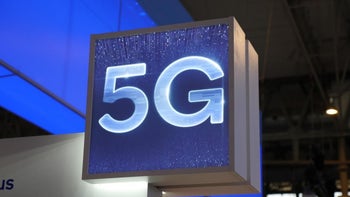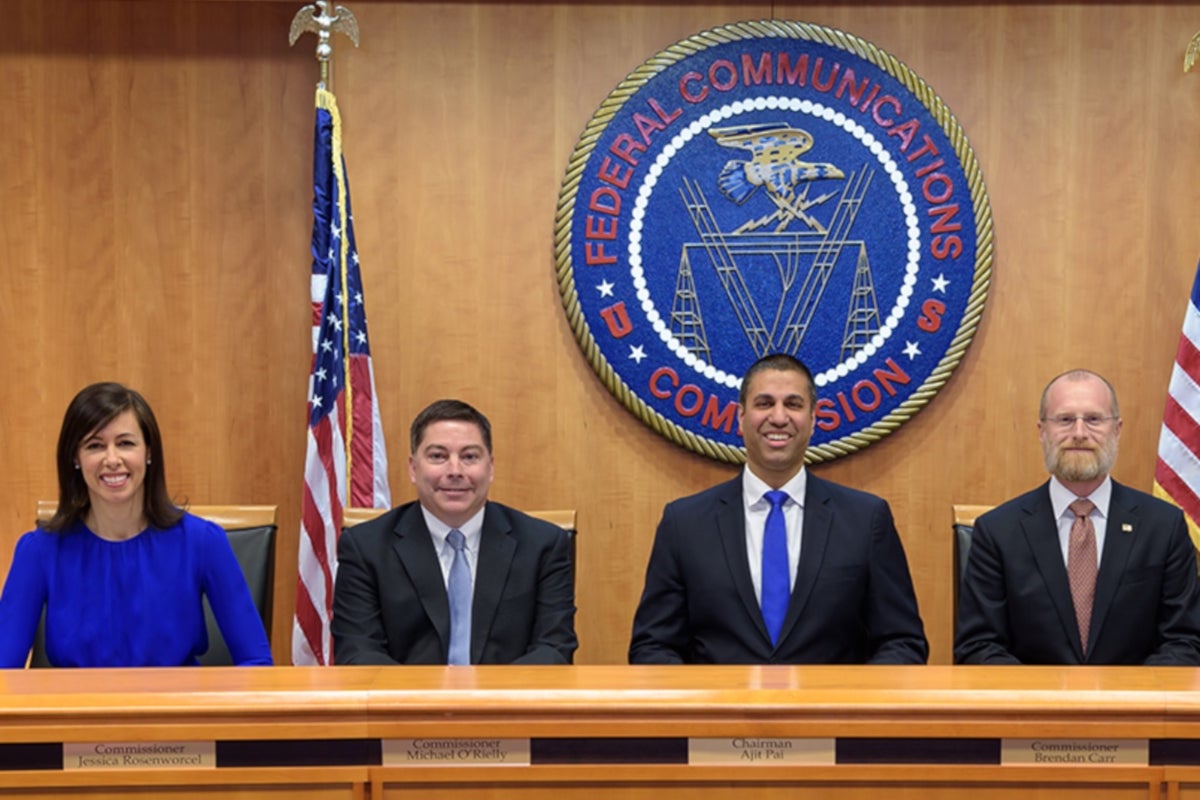FCC approves plan that will lead to an auction of mid-band spectrum for 5G

There is a shortage of mid-band spectrum in the U.S. for 5G use. These airwaves might not be as fast or carry as much traffic as ultra-high-band mmWave. Nor do they travel as far and penetrate structures as well as low-band spectrum does. But these signals do deliver faster data speeds than low-band and travel farther than mmWave. So when combined with low and ultra-high spectrum, mid-band airwaves help fill in the gaps. In the case of T-Mobile, which is weeks away from closing on its deal to merge with Sprint, capturing the latter's 2.5GHz spectrum will allow it to deliver 5G signals to rural Americans.
But there are other carriers besides T-Mobile that will need to obtain mid-band spectrum for their 5G networks. You might have heard of a carrier named Verizon, which is only the largest wireless provider in the U.S. Bloomberg reports that the FCC voted today 3 to 2 to approve a plan that will pay satellite companies such as Intelsat SA for mid-band spectrum in the range of 3.7GHz to 4.2 GHz. The satellite firms will receive as much as $9.7 billion in aggregate in exchange for their mid-band holdings.
The FCC vote was across party lines with the agency's two Democrats voting against it
The 3-2 tally was across party lines as the FCC's two Democrats both voted against the plan. Senior Democratic commissioner Jessica Rosenworcel said that instead of paying the satellite firms for giving up their airwaves, the money could have gone to help pay for rural broadband instead. Commissioner Rosenworcel suggested that it is up to Congress, not the FCC, to make that final determination. FCC Chairman Ajit Pai, a Trump appointee, agreed that Congress should decide about the financial issue. However, Pai also said that it would be irresponsible to sit back and wait for a politically split Congress to take action.

By a 3-2 vote, the FCC agrees to pay foreign satellite firms to auction off their mid-band spectrum
Pai had suggested earlier this year than Intelsat SA receive $4.85 billion for turning over its airwaves quickly. It is unknown whether that figure is still on the table. The satellite firm had sought a higher payout amounting to 60% of the amount bid for all of the spectrum by wireless providers. Another satellite company called SES wanted the same terms as Intelsat although the FCC has proposed that it receive 41% of the total bid.
While Verizon has been building out its 5G network using mmWave spectrum, the properties inherent in these signals guarantee that it will take longer for the carrier to complete the network. It does, however, mean that Verizon will have the fastest network. Instead of using low-band spectrum to quickly finish the construction of its 5G network, Verizon is interested in the mid-band spectrum that is up for auction. Obtaining these airwaves could allow the carrier to speed up the timetable to complete its own nationwide 5G network without giving up too much in the way of data speed.
Telecom executives and analysts agree that the 3.7GHz-4.2GHz mid-band spectrum being auctioned is important if the U.S. plans to take global leadership of 5G. The next generation of wireless connectivity, 5G will deliver download data speeds 10 times faster than 4G, and with low latency. As a result, the first country to embrace 5G will be the global leader in the development and production of the new technologies and industries that will result from it.
Calling the FCC's decision "Another huge step forward," Verizon Chairman Hans Vestberg said today in an email, "The FCC clearly understands the need to move swiftly to ensure that critical wireless spectrum is quickly made available so that we can build the networks of the future." But not everyone was thrilled with the FCC's vote. Senator John Kennedy (R-Lousiana) called the money being paid to the foreign satellite companies "a giveaway." In an email, Senator Kennedy wrote, "Shelling out billions for airwaves we already own is no way to handle taxpayer money. These foreign satellite firms want all four feet and their snout in the taxpayer trough.










Things that are NOT allowed: